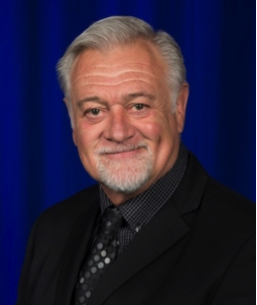
Date:
Location:
Title:
abstract
Polycrystal aggregates subjected to plastic deformation exhibit changes in the yield stress and extended transients in the flow stress when they are reloaded along a different strain path. These effects (a well known one is the Bauschinger effect) are related to the rearrangement of the dislocation structure induced during previous loading. Here we present a dislocation-based hardening model that accounts for dislocation recombination and back-stresses, implement it in the polycrystal code VPSC, and simulate strain path changes in low carbon steel and in Mg AZ31. The path changes consist of tension followed by shear, and forward and reverse simple shear for the steel. In the case of Mg AZ31 we preload in tension along the rolling direction (RD) and reload in tension at different angles with respect to the RD. The results are compared to experimental data and highlight the role that directional dislocation structures induced during preload play during the reload stage.
We also discuss the use of this model for the interpretation of cruciform test results. The test allows us to impose arbitrary plane stress conditions and path changes, but the results are difficult to interpret in terms of constitutive response. Here we show that, when combined with Finite Element simulations, the crystal plasticity model provides a valuable tool for interpreting cruciform test results.
bio
Dr. Tomé joined Los Alamos National Laboratory in 1996 as Scientist, and he is currently a Laboratory Fellow. Prior, he was a Professor at the National University of Rosario (Argentina) and Scientific Staff Member at Atomic Energy of Canada. He holds a doctorate in Physics from the National University of La Plata (Argentina). For the last 30 years, his research interest has been on elastic, plastic and creep behavior of polycrystalline aggregates. Dr. Tomé has pioneered the theoretical and numerical modeling of mechanical behavior of polycrystals, with a focus on the role played by texture, twinning and microstructure. He has also contributed to the development of constitutive equations at the single crystal level for low symmetry metals and geologic materials. His numerical codes are used by material scientists in academia and research centers to simulate mechanical response of crystal aggregates.
Dr. Tomé has 190 peer-reviewed publications with over 16,000 citations and an h-index of 60. He has co-authored the books, “Texture and Anisotropy” and “Fundamentals and Engineering of Severe Plastic Deformation”. He received the 2013 Distinguished Scientist/Engineer Award presented by the Structural Materials Division of The Minerals, Metals & Materials Society (TMS), the 2016 Khan International Award for outstanding life-long contributions to the field of plasticity, and the 2016 Cyril Stanley Smith Award, awarded by TMS Honors and Professional Recognition Committee and the TMS Board of Directors.
Hosted by Irene Beyerlein. Download event flyer.
(No link to a website available.)



